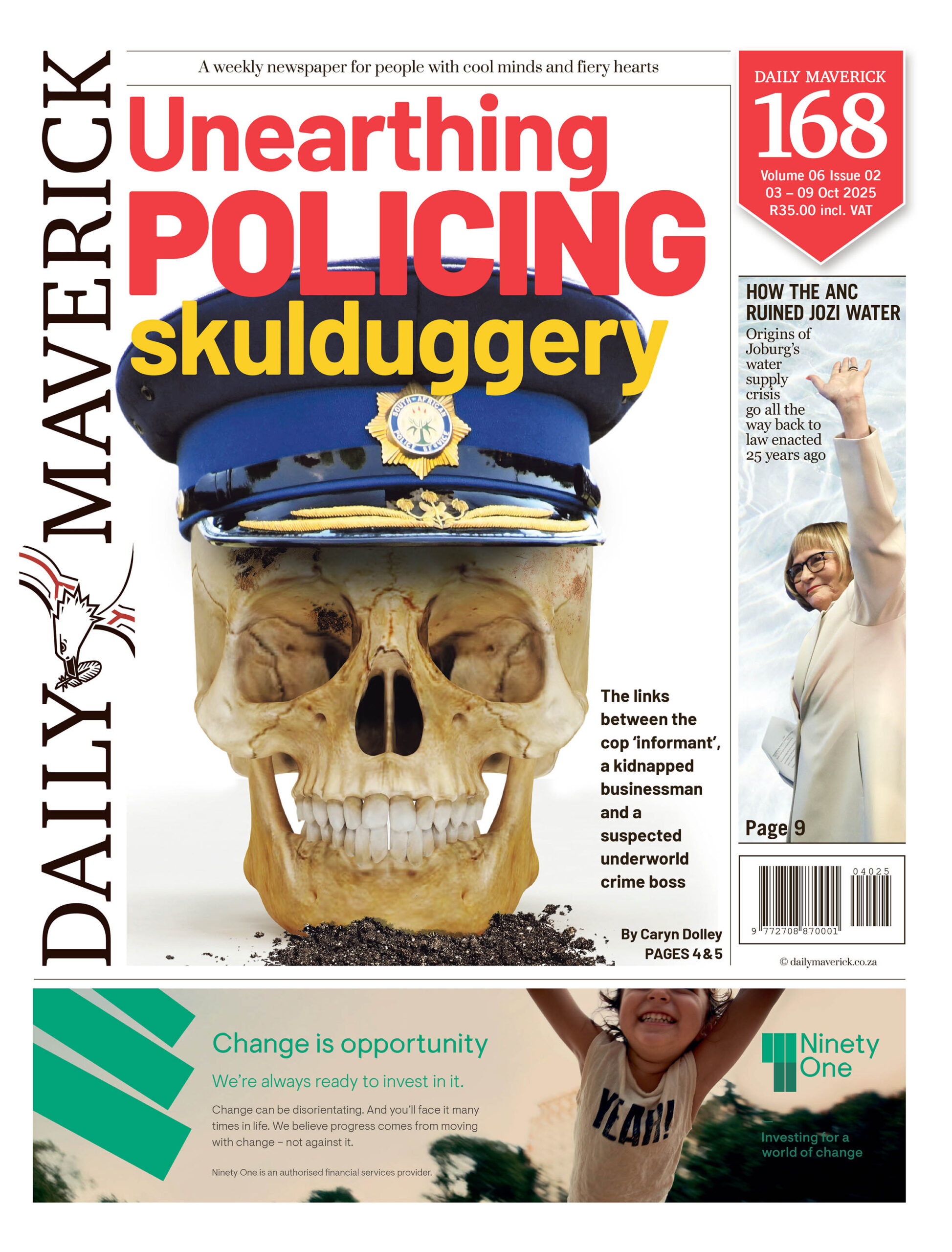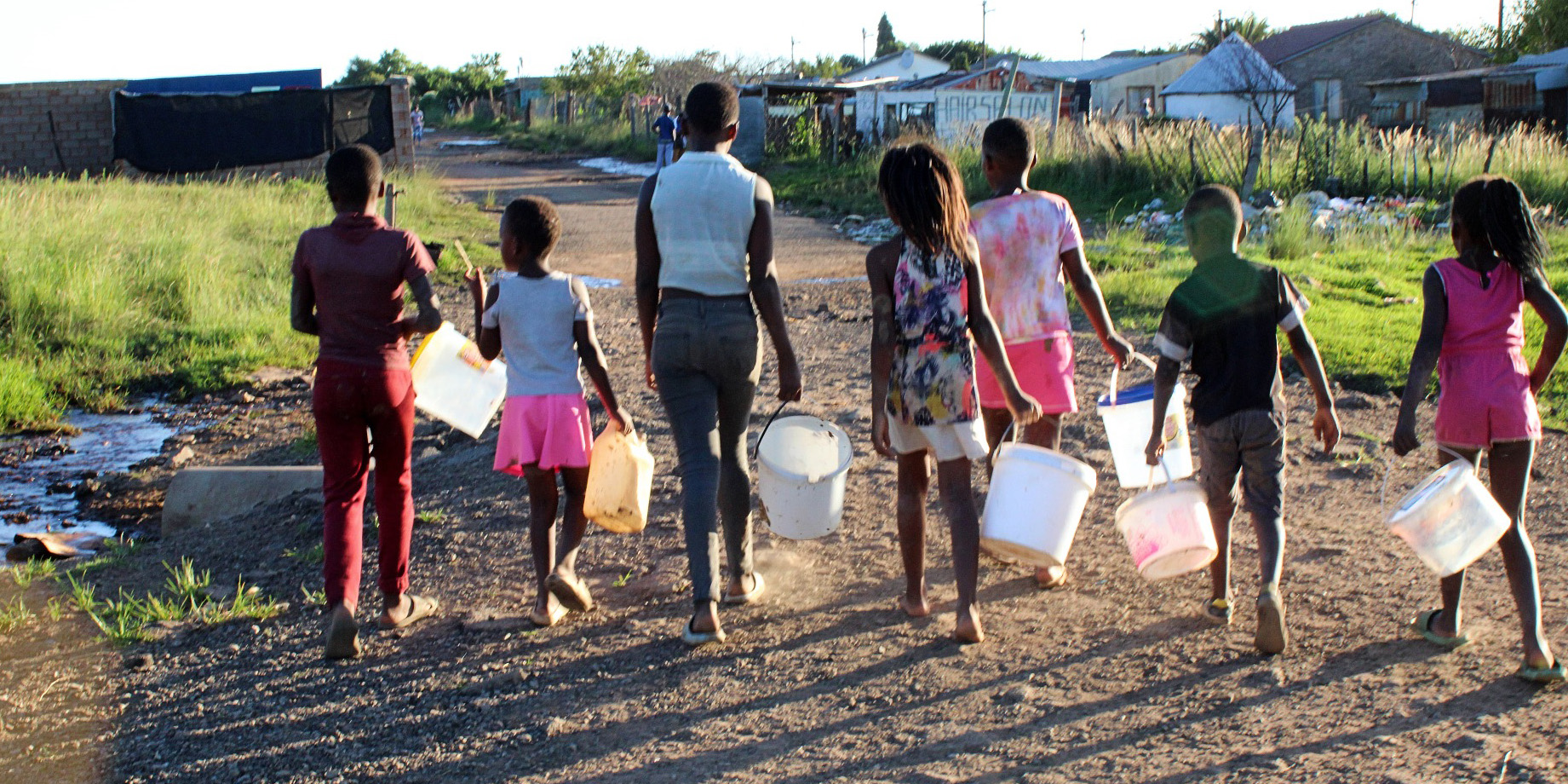I spent six years studying water and sanitation in Johannesburg for my master’s degree and PhD. Joburg had arguably the best-quality municipal water in South Africa at one stage, and enough of it to meet demand. How did it all go so horribly wrong?
The water supply and infrastructural crisis began when the then ruling ANC shut down municipal departments in Joburg in 2000 and in their place formed corporatised, arms-length utilities such as Johannesburg Water, City Power and Pikitup.
Under apartheid, the Joburg municipality’s supply of water was the most efficient and effective on the entire African continent. But obviously, the biggest problem was the glaring inequalities in socioeconomic conditions between whites and blacks and the systemic, causal white racism which underlined it, such as in health, housing, educational provision and so much more.
However, until the municipal legislative changes in 2000, services such as water, sanitation, sewerage and electricity provision were directly provided by the municipality, though with vastly different standards for white and black households. But then, with the passage of the Municipal Systems Act of 2000, all municipal departments were shut down through political machinations and without any consultation with the affected communities.
World Bank officials came to Joburg and persuaded ANC politicians that the corporatisation and commercialisation of water and other municipal services were the way to go. I clearly remember that I had a discussion with the former president and deputy president of South Africa, Kgalema Motlanthe, who kept attributing the policy changes to the influence of those officials. He assured me that it was not ANC policy to support the installation and introduction of prepaid water meters in poor black working-class townships.
The raging water supply crisis in Joburg today flows out of that decision in 2000 to commercialise, corporatise and commodify municipal water. To prove the veracity of this statement, look at when the enforced installation and, in fact, imposition of prepaid water meters on residents began – immediately after 2000. That is when Joburg Water began to roll out prepaid water meters in places such as Orange Farm and Phiri, Soweto.
/file/dailymaverick/wp-content/uploads/2022/08/ED_0059725.jpg)
Going back further
But the main problem has even deeper roots. It began soon after our uhuru elections in 1994. The Water Services Act of 1997 imposed cost recovery and commercialisation as operating principles. In other words, people in black townships were required to pay for water, unless they obtained it from a communal water tap a few hundred metres from where they lived.
When Johannesburg Water began imposing prepaid water meters, ordinary people were so angry at this measure that in Phiri, where my case study of 200 households was based, they began to rip those meters from the ground. Johannesburg Water and the municipality had to deploy the army to complete the installation of the meters.
By then the Reconstruction and Development Programme (RDP) was already history. The ANC government unceremoniously shut down the RDP office on 28 March 1996 and three months later, in June, introduced the distinctly neoliberal Growth, Employment and Redistribution (Gear) strategy.
The RDP had made provision for compulsory water provision without having to necessarily pay for it, especially if one was unemployed and did not have the means to do so. Alongside the cruel fate of the RDP, the Freedom Charter was also virtually abandoned by the ANC government.
It is such a situation that gave rise to the militant, community-based social movements, which sadly went into decline in the mid-2000s. But a critically important fact to acknowledge is that there has been a growing water and sanitation crisis in Joburg over many years, especially after the introduction of the Municipal Systems Act.
Selective provision
The whole notion of “water scarcity” is a deceiving myth. The largely white wealthy suburbs of Johannesburg have always had an abundance of water, including after 2000. They were not affected by the deepening water and sanitation crisis taking place in most of the city, especially in black working-class townships, where the vast majority of residents reside.
/file/dailymaverick/wp-content/uploads/2025/09/DSC_4642-1.jpg)
What happened to water and sanitation services in black townships after 2000 was that the legislative changes, especially after the brutal imposition of prepaid water meters, left households with much less water than they had before.
Quite simply, if you did not have cash to buy coupons to recharge the meters and you were not a registered indigent (a demeaning and stigmatising bureaucratic process), you were left without water as well as sanitation, because the latter only operated when there was water in the tank.
My doctoral study between 2005 and 2007 showed the devastating consequences in all the households that could not afford to buy coupons to recharge meters. They constantly needed money to have water, making those meters the most brutal form of the commercialisation, corporatisation and commodification of water we have had in the entire history of Joburg, especially in black communities with high levels of unemployment and poverty.
Besides, though we currently have an unprecedented water supply crisis in Joburg, there have been terrible forms of sanitation in existence for many years in the black townships and informal settlements, namely bucket and chemical toilets and ventilated pit latrines, which are the most demeaning, harmful and brutal forms of sanitation.
But who talks about those matters in the media? Water and sanitation have, for more than a century, been inseparably linked by many threads to questions of culture, civilisation and development.
/file/dailymaverick/wp-content/uploads/2025/09/WFD_9452.jpg)
Voting to fix it
It is against this background and the attendant rampant corruption, incompetence and mismanagement that we now have the heart-rending and brutal water supply crisis in Johannesburg. And it is against this same background that I have decided to support DA Federal Council chairperson Helen Zille for the crucially important position of mayor of Joburg.
In recent interviews, Zille made it clear that, should she become the next mayor, her biggest priority would be to deal with the water crisis. In this regard, she correctly pointed to the heart of the crisis: the stark lack of investment in regular maintenance and infrastructural development in water, sanitation and sewerage services.
What Zille did not mention was the devastating impact that corruption, incompetence and mismanagement had on resources, especially during the ANC’s control of the municipality for two decades until 2016.
It is those who don’t know this history and how important it is in dealing with the water crisis who have chosen to rather emphasise her terribly misguided and fundamentally false response to the flagrant genocide in Gaza. DM
Dr Ebrahim Harvey is a political writer, analyst, commentator and author of The Great Pretenders: Race and Class under ANC Rule.
This story first appeared in our weekly Daily Maverick 168 newspaper, which is available countrywide for R35.





 MC-Hot-Handle
MC-Hot-Handle